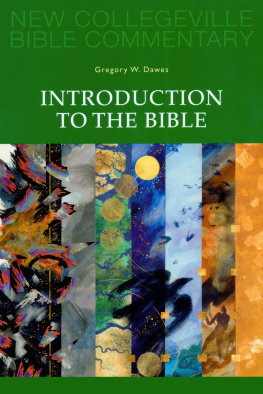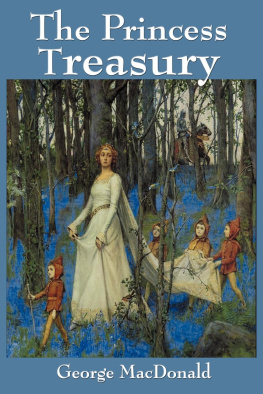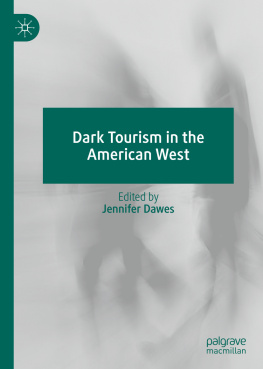The Alexiad of the Princess Anna Comnena
This is one of the fundamental sources of information on Chivalry as well as on many other interesting subjects. Princess Anna was the daughter of the Byzantine Emperor Alexius I, and obviously a highly educated and cultured woman. This is the first and only full translation of this remarkable work, although it has been much quoted in various scholarly works. Sir Walter Scott relied heavily on it for his various accounts of the chivalric tradition.
The Alexiad of the Princess Anna Comnena
ELIZABETH A.S. DAWES
First published in 1928 by Kegan, Paul, Trench & Trbner.
This edition first published in 2009 by
Routledge
2 Park Square, Milton Park, Abingdon, Oxon, OX14 4RN
Simultaneously published in the USA and Canada
by Routledge
270 Madison Avenue, New York, NY 10016
Routledge is an imprint of the Taylor & Francis Group, an informa business
Kegan, Paul, Trench & Trbner 1928
All rights reserved. No part of this book may be reprinted or reproduced or utilised in any form or by any electronic, mechanical, or other means, now known or hereafter invented, including photocopying and recording, or in any information storage or retrieval system, without permission in writing from the publishers.
British Library Cataloguing in Publication Data
A catalogue record for this book is available from the British Library
ISBN 10: 0-7103-0929-5
ISBN 13: 978-0-7103-0929-7
Publishers Note
The publisher has gone to great lengths to ensure the quality of this reprint but points out that some imperfections in the original copies may be apparent. The publisher has made every effort to contact original copyright holders and would welcome correspondence from those they have been unable to trace.
CONTENTS
ERRATA
p. 147 l. 1. | for shops read wharfs |
p. 239 l. 5. | read the Emperor, after having sealed them, shewed them to |
p. 239 l. 38. | for natives read barbarian auxiliaries |
The Alexiad
THE Alexiad of Anna Comnena has long been used as a source of information by historians of the Byzantine Empire and by writers on the First Crusade, and numerous extracts from it have been quoted and translated, yet a complete English translation of it has not been published before.
It was to supply what appeared to me a regrettable omission that I attempted to fill the gap and, as I proceeded with the work, I became more and more interested, for the book gives a picture of wonderful mental and physical energy in the person of its hero, the Emperor Alexius, and helps us to realize the enormous difficulties which confronted a Byzantine Emperor at this period.
Readers of Sir Walter Scotts Count Robert of Paris may also be glad to have a full translation of a work to which he so often alludes.
The present translation is not a free adaptation of the original but is as literal as a translation can well be; hence there is much repetition of words and phrases, for I have striven to reproduce Annas style as far as possible.
The text on which I have based my version is that of Aug. Reifferscheid in the Teubner edition of 1884.
The text on which I have based my version is that of Aug. Reifferscheid in the Teubner edition of 1884.
The proper names (with the exception of those which have acquired a definite English form) I have in most cases trans-iterated exactly and then added in a footnote the spelling of them as found in Burys edition of Gibbon, e.g. Apelchasem = Abul-kassim.
I have dispensed with an historical introduction in view of the fact that the Oxford University Press is shortly publishing a book by Mrs. Georgina Buckler, Ph.D., entitled Anna Comnena: a Study, which deals exhaustively with the chief points of interest raised by the Alexiad.
In conclusion, I wish to acknowledge my deep indebtedness to Professor F. H. Marshall, for he looked over my work in manuscript, and gave me many valuable suggestions and kind help in the elucidation of difficulties. And I must also express my grateful thanks to my sister, Mary C. Dawes, M.A., for her patient help in the revision and in the perusal of the proof-sheets.
ELIZABETH A. S. DAWES.
THE ALEXIAD
I
T IME in its irresistible and ceaseless flow carries along on its flood all created things, and drowns them in the depths of obscurity, no matter if they be quite unworthy of mention, or most noteworthy and important, and thus, as the tragedian says, he brings from the darkness all things to the birth, and all things born envelops in the night.
But the tale of history forms a very strong bulwark against the stream of time, and to some extent checks its irresistible flow, and, of all things done in it, as many as history has taken over, it secures and binds together, and does not allow them to slip away into the abyss of oblivion.
Now, I recognized this fact. I, Anna, the daughter of two royal personages, Alexius and Irene, born and bred in the purple. I was not ignorant of letters, for I carried my study of Greek to the highest pitch, and was also not unpractised in rhetoric; I perused the works of Aristotle and the dialogues of Plato carefully, and enriched my mind by the quaternion of learning. (I must let this out and it is not bragging to state what nature and my zeal for learning have given me, and the gifts which God apportioned to me at birth and time has contributed).
However, to resumeI intend in this writing of mine to recount the deeds done by my father for they should certainly not be lost in silence, or swept away, as it were, on the current of time into the sea of forgetfulness, and I shall recount not only his achievements as Emperor, but also the services he rendered to various Emperors before he himself received the sceptre.
II These deeds I am going to relate, not in order to shew off my proficiency in letters, but that matters of such importance should not be left unattested for future generations. For even the greatest of deeds, if not haply preserved in written words and handed down to remembrance, become extinguished in the obscurity of silence.
Now, my father, as the actual facts prove, knew both how to command and how to obey the rulers within reasonable limits. And though I have chosen to narrate his doings, yet I fear that the tongues of suspicion and detraction will whisper that writing my fathers history is only self-laudation, and that the historical facts, and any praise I bestow on them, are mere falsehoods and empty panegyric. Again, on the other hand, if he himself were to supply the materials, and facts themselves force me to censure some of his actions, not because of him, but from the very nature of the deed, I dread the scoffers who will cast Noahs son, Ham, in my teeth, for they look at everything askew, and owing to their malice and envy, do not discern clearly what is right, but will blame the blameless as Homer says. But he who undertakes the rle of an historian must sink his personal likes and dislikes, and often award the highest praise to his enemies when their actions demand it, and often, too, blame his nearest relations if their errors require it. He must never shirk either blaming his friends or praising his enemies. I should counsel both parties, those attacked by us and our partisans alike, to take comfort from the fact that I have sought the evidence of the actual deeds themselves, and the testimony of those who have seen the actions, and the men and their actionsthe fathers of some of the men now living, and the grandfathers of others were actual eye-witnesses.












